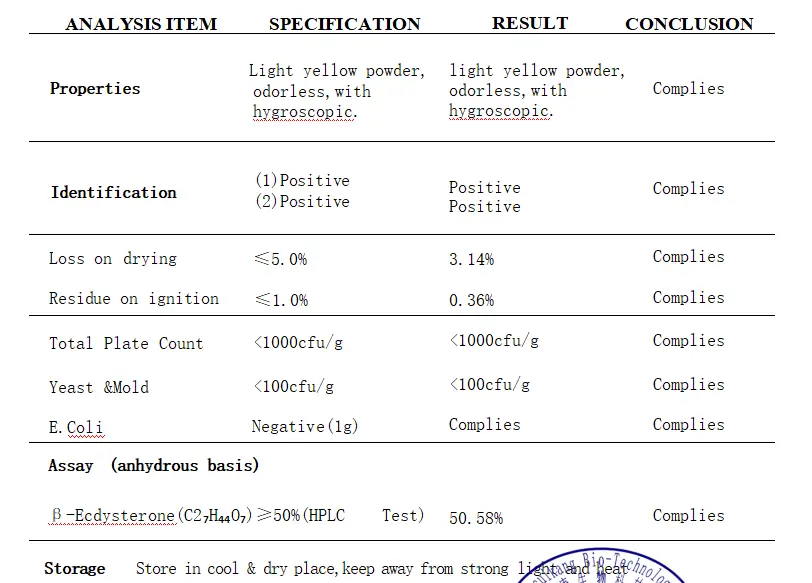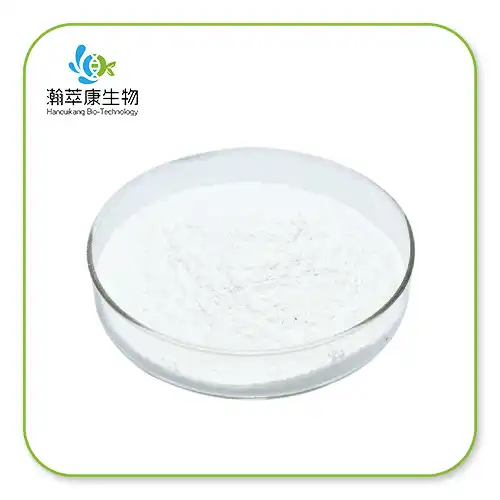Ecdysone is a steroid hormone primarily found in arthropods (e.g., insects and crustaceans), where it regulates growth and molting processes. In insects, ecdysone is secreted by the prothoracic gland and controls key developmental processes like molting and metamorphosis by stimulating gene expression.
Characteristics
Chemical Properties: Ecdysone belongs to the steroid compound family, typically derived from cholesterol in plants or animals.
Main Types:
20-Hydroxyecdysone (20E): The most common and biologically active form of ecdysone.
Ecdysone: The precursor form of 20-hydroxyecdysone.

Biological Functions
Regulating Insect Molting:
Periodic fluctuations in ecdysone levels during insect development trigger molting or the transition from larva to pupa and adult.
Gene Expression:
Ecdysone activates specific receptors (e.g., EcR receptor) to regulate the expression of developmental genes.
Growth Regulation:
Controls tissue remodeling and cell differentiation in insects.

Ecdysone has wide-ranging applications across various fields, particularly in agriculture, biomedicine, and scientific research. Below is an overview of its major applications and roles:
1. Agricultural Applications
Biopesticides:
Ecdysone and its analogs can disrupt the normal development of pests, preventing them from completing their molting or reproductive cycles, thereby effectively reducing crop damage.
Advantages: Environmentally friendly, causing minimal harm to non-target organisms and ecosystems.
Insect Growth Regulation:
Used to control insect growth rates, suitable for managing pest populations.
2. Biomedical Applications
Plant-Derived Ecdysteroids (e.g., 20-Hydroxyecdysone):
Anti-inflammatory Effects: Reduces inflammatory factors, potentially beneficial for treating inflammatory diseases such as arthritis.
Antioxidant Properties: Helps eliminate free radicals, combating cell aging and oxidative damage.
Immune Boosting: Enhances the activity of immune cells, supporting immune system functions.
Fitness and Wellness:
Some natural ecdysteroids are believed to aid in muscle protein synthesis and improve athletic performance, often used in fitness and dietary supplements.
3. Research Applications
Gene Expression Regulation Tool:
In molecular biology, ecdysone can serve as an inducer, activating specific receptors (e.g., EcR receptor) to precisely control gene expression.
Advantages: Highly specific, allowing target genes to be activated under specific conditions and timings.
Insect Development Studies:
Its critical role in insect growth and development makes ecdysone an essential tool for studying insect physiology and genetics.
4. Other Potential Applications
Food Industry:
Ecdysone may help delay food oxidation and maintain freshness.
Aquaculture:
Used to control molting timing in aquatic crustaceans, optimizing farming processes.
Future Prospects
With advancements in biotechnology, the potential applications of ecdysone are expanding, including:
Drug Development: Developing novel drugs based on ecdysone’s molecular structure for treating various diseases.
Environmental Protection: Ecdysone-based green pesticides could replace traditional chemical pesticides.


